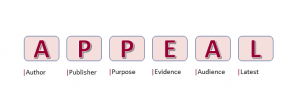9 Critical Thinking: an introduction
Learning Objectives
Critical thinking is based on a range of factors and will assist in making decisions at many levels for university and life.
- Critical thinking as a life skill
- Critical thinking at university
- Why do I need to think critically?
- How do I develop my critical thinking skills?
- Evaluating material
- Questioning as you write
- Note-making for critical thinking
The material in this chapter is adapted from Critical thinking licensed under CC BY 4.0.[1]
Critical thinking as a life skill
Critical thinking is often talked about at university. That’s because it’s a very important skill for you to develop as you go through your degree. You probably already have experience in critical thinking from other areas of life, such as deciding on which phone, computer, or car to purchase, where to live, or even what to wear on a particular occasion. In each situation, you probably don’t just do what someone else tells you to do, but you make a decision based on a range of factors.
 For example, if you’re looking for a room or property to rent, you might have to evaluate things such as:
For example, if you’re looking for a room or property to rent, you might have to evaluate things such as:
- What are the positive points of the property, and what negative points does it have (e.g. first floor apartment means no steps, but possibly less privacy and
less security; the bedroom is next to the driveway so it could get traffic noise; I get my own bathroom, but I’ll have to keep it clean myself)? - Can I afford to live in the property, not just now but for the whole lease period?
- Does the property meet my living needs (enough space for family, pets allowed, smoking allowed, quiet enough, laundry facilities, heating/cooling, etc.)?
- Is the location suitable for my lifestyle (access to transport, distance to work or university, friends, shops, nightlife, etc.)?
- How does this property compare to other properties in the same area or different areas? ‘
- Am I likely to be accepted as a tenant?
- Would I be able to live well with the neighbours/housemates?
The answers to these questions form part of the evidence you consider in order to make your final decision about where you will live.
Gfp-apartment-building-landscape image © Yinan Chen is licensed under a CC0 (Creative Commons Zero) license
Critical thinking at university
At university, critical thinking and writing involve many different ways of thinking.
It’s good to remember that being critical in your thinking is not the same as being negative. For example, when you are reading a paper you might think the author has made a good point. The ‘critical’ part is being able to say why you think they’ve made a good point based on their evidence and argumentation.
If you do disagree with someone’s ideas, you should always do so respectfully. You can show respect by taking their ideas seriously and doing your best to understand how they came to their conclusions. If you go through this process of genuinely engaging with other people’s ideas, you have the right to disagree (even very strongly) with an author’s view.
Why do I need to think critically?
In some cultures, students are expected to memorise information and reproduce it in an exam. In the Australian university context, you are considered a member of the academic community. You are expected to be able to think independently and form your own conclusions based on information from various sources.
Thinking critically has the following benefits:
- You get to see that there is always more than one way of looking at something
- You’ll be able to identify the best ideas and evidence to use in your assignment, and not just settle for the first thing you read
- Your assignment will stand out from the rest because your ideas will be better supported and more convincingly argued
- Your own ideas and academic ‘voice’ will be clearer in your writing because you are better able to explain how and why ideas differ
- You’ll develop your knowledge and understanding more generally as you make connections between different ideas and methods
- You’ll become a better problem-solver and lifelong learner
- You’ll be more attractive to employers
How do I develop my critical thinking skills?
Develop your critical thinking skills by questioning what you read and hear and evaluating it against your own knowledge and other resources. Read widely on the topic to become familiar with the terms and operating landscape. Ask questions about what you read, about what is suggested for you to read and who the experts in the field are.
Ted-Ed video (4:29secs)[2]
- 5 tips to improve your critical thinking by Samanatha Agoos © 2016 Ted-Ed. All rights reserved.
Evaluating Material
When reading individual sources, pay attention to the way that the author makes their point and what evidence they use to support their idea or argument.
 APPEAL graphic for pressbook © Western Sydney University, created by Karen Sheehy is licensed under a CC BY-NC-SA (Attribution NonCommercial ShareAlike) license
APPEAL graphic for pressbook © Western Sydney University, created by Karen Sheehy is licensed under a CC BY-NC-SA (Attribution NonCommercial ShareAlike) license
Questioning as you write
As you research and write, you will make decisions and come to conclusions about particular questions and ideas. It’s important to examine your own processes and ideas as well as those of others. For example, you might ask ‘Why did I come to that conclusion?’ and ‘Why did I decide to include that piece of evidence but not another one?’.
Note-making for critical thinking
You can use notes to do more than collate and organise information. You can also start to think and write critically using your notes.
Choose a note-making system designed to help you:
- question and evaluate information
- ask and answer questions about different aspects of the topic (e.g. who, what, why, how)
- form your own conclusions after reading different viewpoints about issues
- look at the theory and how it relates to practice
A three-column, note-making system for thinking critically also helps you to organise information so you can compare what different sources say about topics. For example, comparing different viewpoints about issues, or comparing research findings about a similar research topic.
| Content and page number Where you found it |
Paraphrase what they say This means… |
Your comments about what they say This connects to… |
|---|---|---|
| Put referencing information here. Include author, title, date, location. |
Write summaries and paraphrases of key points that will help you to answer your assignment questions, or that are closely related to your topic. | Record any questions you have about the topic, and any answers that your reading can give you to those questions. |
| Formatting the reference correctly in this column helps you to paste it into your reference list later. | Make sure you use ‘quotation marks’ for all content that is directly copied. | Link to other sources that agree or disagree with the content. |
This table is adapted from Western Sydney University provided under a CC BY 4.0 Creative Commons Licence;[3] and Kwantlen Polytechnic University provided under a CC BY-NC-SA Creative Commons (Attribution ShareAlike 4.0) Licence.[4]
Need a template to help with note-taking?
You can use this Library Study Smart How-To Guide (PDF 260 KB) as a template.[5]
Also, try this H5P interactive Cornell Notes feature.[6]
Chapter Review
- Critical thinking is a life skill that you will need after you finish university
- Critical thinking doesn’t mean being negative and criticising; it means reading widely, understanding the context, considering alternative viewpoints, assessing the pros and cons and drawing your own conclusions.
- Your point of view may be challenged by what you are reading. How does this affect your business decision making?
- Taking concise and effective notes as your read will help you include critical thinking into your written arguments.
Media Attributions
- Gfp-apartment-building-landscape image © Yinan Chen is licensed under a CC0 (Creative Commons Zero) license
- APPEAL graphic for pressbook © Western Sydney University, created by Karen Sheehy is licensed under a CC BY-NC-SA (Attribution NonCommercial ShareAlike) license
- Western Sydney University Library, Critical Thinking, https://www.westernsydney.edu.au/studysmart, 2017 ↵
- Ted-Ed, 5 tips to improve your critical thinking - Samantha Agoos, 2016. ↵
- Western Sydney University, Note making for critical thinking, 2017. ↵
- Kwantlen Polytechnic University, Three column note taking, n.d. ↵
- Western Sydney University Library, Note-Taking for Critical Thinking, 2024, https://www.westernsydney.edu.au/studysmart ↵
- otacke, Cornell Notes, 2022, https://h5p.org/node/1252534 ↵

